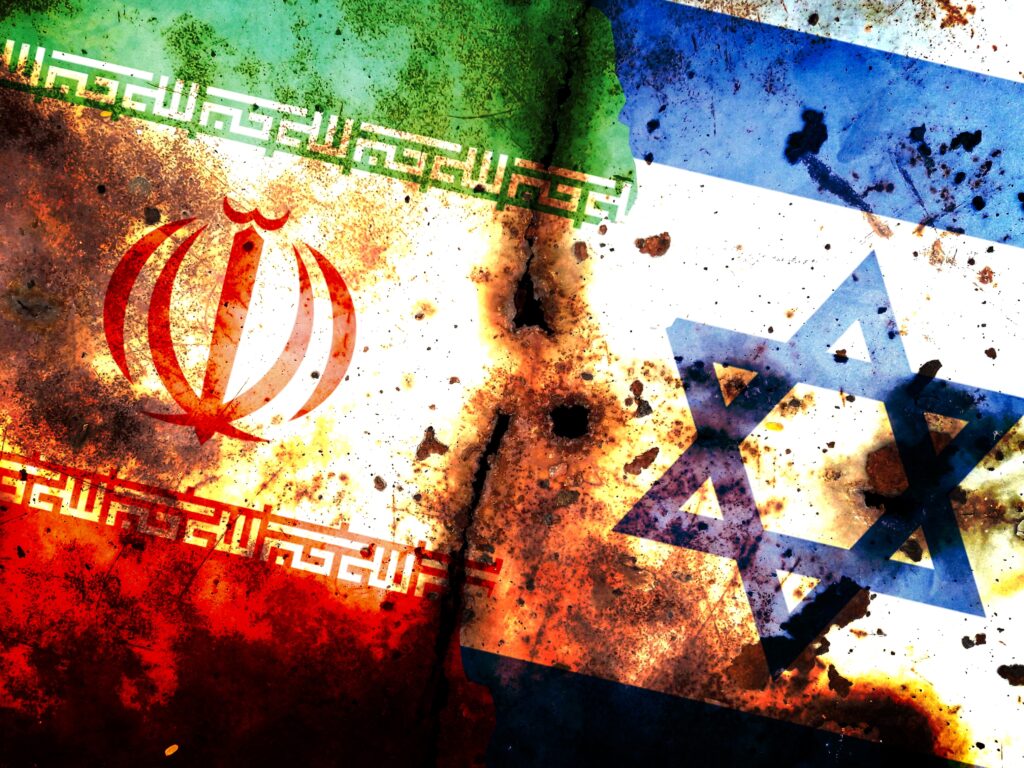IN THE MEDIA
Iran-Israel war: Why now and what happens next
June 19, 2025 | Colin Rubenstein

Sky News Australia – June 18, 2025
It is Iran’s behaviour over decades that made the current Iran-Israel war, precipitated by Israel’s strikes on Iran’s nuclear, missile and defence infrastructure last Friday, inevitable.
The International Atomic Energy Agency’s (IAEA) condemnation of Iran last week, finding it is in breach of its obligation under the Nuclear Non-Proliferation Treaty, tells one part of the story. Iran has been clearly violating international law and heading for nuclear weapons for more than two decades.
As the IAEA notes, there is no civilian use for Iran’s current massive stockpiles of 60per cent enriched uranium, and no non-nuclear weapons state has ever created 60 percent enriched uranium.
Moreover, the IAEA’s latest report found Iran has accelerated production of this 60% enriched uranium, increasing its stockpile by 50 percent in just the last three months. It now has enough to produce at least nine bomb cores within a week or two
The IAEA’s new report also revealed Iran previously worked on nuclear triggers for bombs. Moreover, Israel intelligence says it has information that in recent months “senior nuclear scientists in Iran have been working to secretly develop all components needed for… a nuclear weapon.”
Finally, it’s also worth noting that the IAEA acknowledges its monitoring of the Iranian nuclear program is all but non-existent because Iran has severely limited such monitoring since 2021.
Meanwhile, the Iranian regime is very clear, as always, that it plans to destroy Israel – and created a “Ring of Fire” strategy, incorporating Hamas, Hezbollah, the Houthis, Syria, and Iraqi groups in trying to do so.
It then attacked Israel directly twice last year with hundreds of missiles and drones.
This aggression, plus the IAEA findings, provides both a clear legal basis for Israel’s attack, and explains its strategic necessity, in terms of not only Israeli security, but regional stability more broadly.
While they will not publicly say so, Arab states will be pleased with this attack. Iran made an unprovoked attack on Saudi Arabia in 2019 and seeks to overthrow or dominate all regimes in the area.
But why was the attack launched now?
The timing of the war is likely tied to the IAEA findings, Israeli intelligence about Iran’s nuclear advancing bomb-building plans, Iran’s current strategic vulnerability and the failure of the US Trump Administration’s recent talks with Iran.
The Trump team tried serious dialogue with Teheran, but Iran’s fundamentalist regime completely rejected the only possible basis for a diplomatic deal given the advanced stage of Iran’s nuclear capabilities today – an end to uranium enrichment in Iran.
Meanwhile, Iran’s air defences remain weak after Israel degraded them in retaliation for Teheran’s attacks on Israel last year.
Iran had long counted on the threat of massive retaliation from Hezbollah’s enormous missile arsenal to deter any Israeli attacks, but Israel destroyed most of that capability late last year.
While some claim the 2015 JCPOA nuclear deal stopped Iran’s nuclear drive, and it was only the first Trump Administration’s withdrawal from it that led Iran to its current near-nuclear threshold status, this is the opposite of what happened.
The JCPOA actually facilitated that near-threshold status because it allowed Iran to concentrate on researching and building the advanced centrifuges that brought the Iranian nuclear program so close to weaponisation today. It also never really forced Iran to account for past nuclear weapons work.
We know that Iran kept all its records from that work, instead of giving them to the IAEA as required, because Israel captured that archive in 2018.
Equally incorrect are claims that this war can only push Iran to build nuclear weapons.
As noted, Iran was already poised to, at the very least, become a threshold state with all the components of nuclear weapons ready to assemble at a moment’s notice. This is, for all practical purposes, indistinguishable from being a nuclear weapons state, and comes with terrible consequences in terms of Iranian regional aggression, Israeli security, and the inevitability of a regional nuclear arms race.
In fact, the best-case scenario for this war’s outcome is that the deeply unpopular regime will be overthrown by the Iranian people, in the wake of Israel’s successful killing of almost all the regime’s key military figures, and severe harm to its claim to be providing “security” to Iranians.
The second best case is the Iranian regime deciding it has no choice but to agree to the sort of nuclear deal the Trump Administration continues to push for – one that would see Iran’s domestic enrichment capabilities dismantled. But even if neither of these outcomes eventuates, it is now likely that the Israeli attack will set back Iran from achieving “threshold” status by at least a few years.
That will buy time for the regime to fall or evolve, for diplomacy to finally succeed, or, if absolutely necessary, for Israel to prepare itself to hit Iranian nuclear targets yet again.
Despite the current uncertainty and bloodshed, the world will definitely be a better and safer place if Israel succeeds in dismantling, or at least substantially setting back, Iran’s rapidly maturing nuclear and ballistic missile programs.





